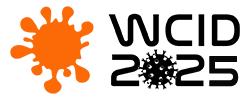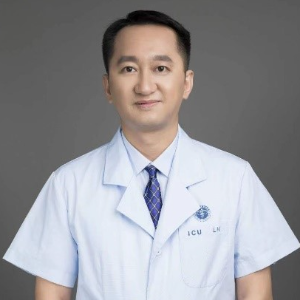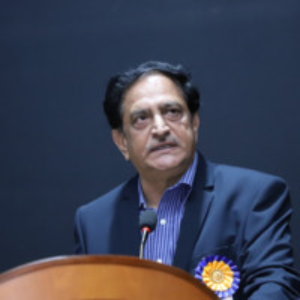Hua Luo, Peking University, China
According to the spirit of international sepsis guidelines and clinical practice in China, we explored the rapid diagnosis and treatment ideas and strategies of different pathogenic infections in ICU to shorten the diagnosis time and improve the rescue efficiency. Taking Gram-pos [....] » Read More








Title : Magnesium sulfate as an alternative treatment in acute organophosphate poisoning: A systematic review and meta-analysis
Oscar Inacio de Mendonca Bisneto, Universidade Federal de Campina Grande - UFCG/CZ, Brazil
Introduction: Organophosphate (OP) poisonings represent a serious medical emergency requiring immediate intervention. The conventional treatment involves administration of atropine. However, studies suggest that magnesium sulfate (MgSO4) could be a promising alternative treatment [....] » Read More
Title : Barriers to polio eradication in South Asia: A systematic review
Awranoos Ahadi, Bolan Medical College, Pakistan
Background: The Eastern Mediterranean Region (EMRO) of the World Health Organization (WHO) is the last region in which polio transmission continues. Afghanistan and Pakistan, also being parts of South Asia, pose a major burden for the transmission of the virus both in the EMRO an [....] » Read More
Title : A rare encounter: Disseminated nocardiosis following myasthenia gravis treatment
Deepak Jacob, St John's Medical College, India
Nocardiosis is an uncommon opportunistic infection caused by filamentous Gram-positive bacteria of the genus Nocardia, predominantly affecting immunocompromised hosts. Immunosuppressive therapy, such as Rituximab, significantly increases susceptibility to such infections . Myasth [....] » Read More
Title : Water quality and intestinal health: Assessment of access to treated water and the prevalence of endoparasitosis in Manacapuru, interior of the Amazon region
Matheus de Oliveira Nogueira, AFYA Faculty of Medical Sciences, Brazil
Background: Parasitic infections persist as a global public health challenge, with the Brazilian Amazon region showing an alarmingly high prevalence of cases. This situation is particularly critical in the interior areas of Amazonas state, where the precariousness of basic sanita [....] » Read More
Title : Leading Through Crisis: Saudi Arabia’s Experience in Managing COVID-19 and Influencing Global Health Strategies
Mohammed Ahmed Garout, Umm Al-Qura University, Saudi Arabia
Saudi Arabia effectively managed infectious diseases and pandemics, including MERS-CoV (2014) and COVID-19 (2020), by implementing an integrated, evidence-based approach. Its strategy emphasized strategic planning, international collaboration, and rapid adaptability to evolving h [....] » Read More
Title : Factors associated with Delayed Treatment Seeking among Mentally ill patients, in a Tertiary Care Center, Chennai, India, January 2022 to March 2022
Venkatesh Mathan Kumar, Institute of Mental Health, India
Introduction The International Early Psychosis Association insists on early treatment for mental illness to achieve a better outcome. Institute of Mental Health (IMH), Chennai, Tamil Nadu, India, offers tertiary care for mentally ill patients. Identifying the reasons for delayed [....] » Read More
Title : Health Facilities Covering Public Health Insurance in Tamilnadu, India, 2024
Harish Kumar Mohan Kumar, MGR Medical University, India
Introduction Universal health coverage can be achieved effectively through public health insurance. In India, only around 37% of the population had been covered under health insurance. In Tamilnadu state of India, public health insurance was initiated in 2012 to facilitate [....] » Read More
Title : Public Health Insurance for Children in Tamilnadu, India, 2024
Harish Kumar Mohan Kumar, MGR Medical University, India
Introduction Universal health coverage can reduce the child mortality rate significantly. Universal health coverage can be achieved through public health insurance. Public health insurance was initiated by the Government of Tamilnadu in 2012 under the name of the Chief Minister& [....] » Read More
Title : The effect of Coronavirus on vascular endothelial cells
Dolgormaa Janchivlamdan, De Montfort Universuty, United Kingdom
Severe acute respiratory syndrome coronavirus 2 (SARS-CoV-2) infection can cause potentially life-threatening coronavirus disease (COVID-19). COVID-19 is a multisystem disease and is associated with significant respiratory distress, systemic hyperinflammation, vasculitis, and mul [....] » Read More
Title : A rare case of ocular syphilis: Bilateral chorioretinitis and the importance of early diagnosis and treatment
Anmol Grewal, Abrazo Health, United States
Ocular syphilis is a rare but significant manifestation of syphilis that can occur at any stage of the disease, often presenting with diverse clinical features such as uveitis, optic neuropathy, or retinal vasculitis, and in severe cases, may lead to permanent blindness. The inci [....] » Read More
Title : Enhancing Hepatitis C Testing and Treatment Accessibility through Innovative Services
Darya V Fridman, The Southern Nevada LGBTQ+ Center, United States
Hepatitis C (HCV) continues to disproportionately affect underserved populations, especially racial and ethnic minorities, creating a pressing need for improved testing and treatment accessibility. Our clinic, which serves a majority-minority population (70.8%), is an ideal site [....] » Read More